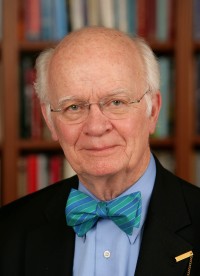Scripture-esque: Wedding texts
Michael Lerich ought to be a hero to church musicians and pastors, most of whom abhor the music chosen by bridal couples for church weddings. “Trust us,” says Lerich. Couples should “leave their personal musical tastes at home. What you listen to in the car or at home with a bottle of merlot does not always transfer” to a wedding celebration.
If only those who are stewards of what goes on in the sanctuary had the guts, the clout or the vision to say “trust us” to couples who want to use a Christian church for pagan ceremonies that go better with a bottle of merlot than with a house of God. Of course, one would not trust Lerich to pick the music for the blessing of the vows, good though he might be at choosing it for more peripheral parts of the celebration. His “aces in the hole” are “Soul Man,” “Twist and Shout,” “I Will Survive,” “Let’s Stay Together,” “Smooth,” “Hot Stuff” and “The Way You Look Tonight.” Trust us: much church-wedding music does not rise to these heights.
As with music, so with words. Many a pastor or priest has to leave part of her or his conscience at home when giving grudging assent to words chosen by couples to be read or uttered or vowed in church ceremonies. Or the presiding and blessing cleric wishes for plugged ears as lectors step forward from wedding parties or couples recite vows unrehearsed and unanticipated.
According to Cathy Lynn Grossman, who in USA Today condensed an article in a recent Brides magazine, tastes are changing but, to our taste, not improving. Good news, of course, to the ears of several hundred thousand clergy is the fact that Kahlil Gibran’s “Scripture-esque poetry has paled.” And not an epoch too soon. The Little Prince is flying away. Good riddance. It’s nice also that pastors and couples now can see only the vanishing tail of The Velveteen Rabbit. Even the few lines of kitsch that poet Rainer Maria von Rilke ever wrote are being used less regularly. Good. We can get back to the rest of Rilke.
So what is replacing all these? According to Grossman, the current lead is a putative “Apache Blessing,” words probably never voiced by a living breathing Apache. (“Go now to your dwelling place to enter into the days of your togetherness, and may your days be good and long together.”) “Countless versions of the questionably authentic blessing are on the Internet,” Grossman states. But says Ema Drouillard, a nondenominational wedding specialist in San Francisco, “A lot of people don’t even want readings. They’re tired of the Apache Blessing, tired of the Bible. It’s ‘been there, heard that.’”
Drouillard adapts to the 30 percent who refuse any reference to religion in a service presided over by a “reverend.” “She has a draft of soul-free [sic] basic vows in her repertoire.” Soul-less, perhaps? William Doherty of the University of Minnesota, who studies these things, notes that many individuals who enter “consumer marriage” with a contract like a variable mortgage “based almost entirely on whether our personal needs are met” come up with vows such as “as long as we both shall love,” not “live.” The divorce court beckons.
Of course, the Bible is not rich in wedding texts. Duke University chaplain William H. Willimon writes about how hard it is to find pro-family and pro-marriage texts. Don’t try Luke 14:26 or even Ephesians 5, which is about the church, not marriage. Still, one can do better than use fake-Apache or “soul-less” San Franciscoisms by reaching into other corners of the Bible, the classic liturgies (OK, we’ll give up on “obey”!) and profound and moving Christian poetry.






